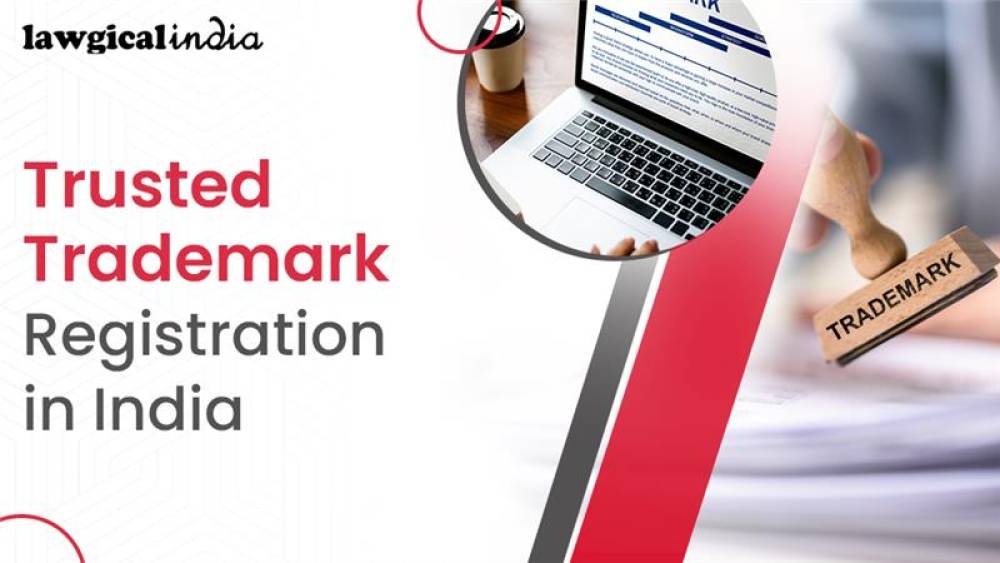An intangible asset for a business, trademarks enable customers to identify its products and services. The trademark application procedure begins with the selection of trademark classification. Understanding the different forms of trademark applications filed in India might assist you in selecting a trademark that is better suited to your company.
Based on section 18, of the Trademarks Act, 1999, the registrar can accept a single registration for many classes of goods and services, each of which the applicant should be paid for separately.
What Exactly Is Trademark Registration?
It is possible to distinguish one business, company, or organization from another through a trademark. The business owner can choose from various visual symbols and signs. For example, corporations can trademark their brand names, logos, emblems, and taglines to safeguard the originality of their products and services.
Trademarks allow businesses and individuals to differentiate themselves from their competitors' products and services by registering their trademarks online.
Significance of Registering a Trademark.
Trademark registration offers legal security to the registered trademark owner.
Trademark registration aids in the creation of product distinctiveness from the competition.
Trademark registration aids in the development of goodwill and a positive reputation for the company's brand.
It is an advantage for any firm to have a legally protected trademark.
Business value and net worth are increased when a trademark is registered.
Trademark registration aids in the expansion of a business, allowing it to offer new goods and increase its market share.
Trademark Application Value
If you want your company, brand, product, or service to stand out, you must register your trademark with the help of LawgicalIndia.
By securing your trademark, you can avoid the need to rebrand in the event of a similar product or service appearing on the market.
A trademark application in India is needed to protect your intellectual property and legal rights.
Different Types of Indian Trademark Applications
1. Single Trademark
To register a single trademark application, we must use Form TM-A, which covers only one class of products and services. E-applications require a cost of Rs.4500/-, while manual submissions require a price of Rs.5000/-. Securing a trademark in a specific category is straightforward and less time-consuming.
2. Multiclass Trademark
An application for a single trademark to be registered in various classes is called a multiclass application. The applicant must complete FORM TM-A to apply for several classes. This submission form requires less documentation because we submit one application for multiple courses. The applicant must pay a fee equal to Rs.4500/-. Therefore, the applicant is required to pay a cost of Rs. 18,000/- if he chooses to file in four multiple classes.
Nevertheless, there is a possibility that the registry might block the entire trademark application procedure if it discovers a problem in any one of the classes. There are situations when a third party will take a position instead of each class. If their resistance is successful, the entire application will be turned down, irrespective of whether or not the trademark is eligible for registration in other classes.
3. Trademark Priority
Applicants from member nations of the Madrid Convention may file trademark registration in India under Section 154 of the Trademarks Act. Within the next six months of applying to one of the conventions countries, a person may file in India. In such a situation, trademark registration in India needs to be completed on the date the application was submitted to the convention nation.
Filling out FORMTM-A is required for both single-class and multiple-class priority trademark applications. This application is a significant benefit for people who want to protect their trademark in multiple countries.
4. Application Series
As the name suggests, this trademark application allows the applicant to register more than one trademark in a single application by using FORM TM–A. It is perfect for brands that are hard to differentiate from or have similar marks.
The goods or services must also fall under the same nice categorization for the trademarks to be accepted. A series of trademark applications is impossible if the marks are all in the same nice category. Still, each has a different description. Non-distinctive aspects such as the color, size, or quantity of a product can be different from one another.
5. Trademark Certification
An item or service with this trademark implies that it has been tested to satisfy a specific quality level. There are certification marks on products and services that signify that they are made of a particular material, went through a specific manufacturing process, have an identified location of origin, and fulfil the quality requirements set upon by the certification mark. It is possible to use FORM TM-A to apply for certification marks under one or several classes.
6. Collective Trademark
To protect their brands, associations that require members to use specific terms or standards when referring to their products or services might apply for collective trademarks. Three copies of the FORM TM-A should be submitted to the trademarks office by any organization that wants to apply for a collective trademark. The Form will include information such as the names of the members, the individuals who are permitted to use the mark, and the standards for membership.
If you are not a member of the organization, you are not allowed to use this mark. Applicants' needs should be taken into consideration while submitting a trademark application. The company's long-term goals must be kept in mind while registering a trademark in a particular category.
Conclusion
There are some advantages of trademark registration in India, which outweigh the costs. Even though trademarks are challenging to value completely, the increase in turnover that trademark registration India brings is enough to justify the investment. To avoid having your brand's identity stolen by competition, you should now register your brand's name. Lawgical India combines business professionals, IT engineers, and marketing experts to provide various services, including legal support like MSME certification and brand services, including copyrights and trademarks.












No comments yet. Be the first to comment!